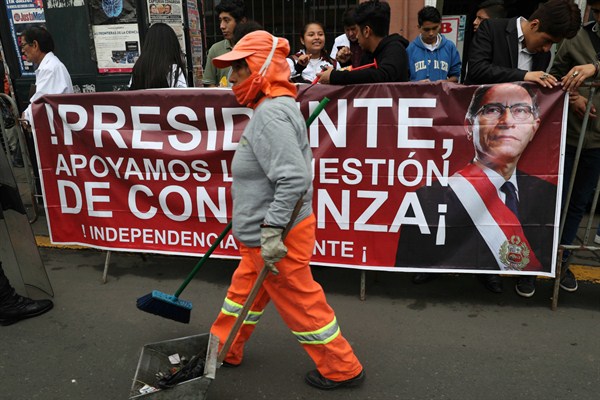Martin Vizcarra is Peru’s accidental president, elevated to office after Pedro Pablo Kuczynski resigned in March 2018, when it became clear that he could not survive a second impeachment vote over corruption allegations. Vizcarra’s administration started warily, leading many observers to assume he would be just a caretaker president with a deferential attitude toward Congress, which is controlled by opposition leader Keiko Fujimori and her right-wing, Popular Force party. But after revelations last year of widespread corruption in the upper echelons of the judiciary and the timid congressional response, Vizcarra changed course. He announced he would put a series of questions regarding both political and judicial reform to a popular referendum, including one banning the immediate reelection of lawmakers after a five-year term. He suddenly looked more like a leader on a mission.
Despite Congress’ initial reluctance to call the referendum, it relented when Vizcarra officially declared that the referendum would be a “vote of confidence” in his Cabinet. Peru is among the handful of presidential systems—Russia and France are other examples—that give Congress the right to have a vote of no confidence in the government. When such a vote is issued, the prime minister, and the Cabinet, must resign, but the president remains in office until his or her term is completed. Had the Fujimoristas and the rest of the opposition in Congress refused to go along with the referendum, Vizcarra would have been legally entitled to dismiss Congress and call for new congressional elections, under the terms of Peru’s Constitution.
After Vizcarra won the referendum held last December, he sent a package of 12 bills dealing with political reform and anti-corruption measures to Congress in April. Some of the proposed reforms are meant to give constitutional stature to what is already written in Peru’s electoral laws—for example, that an incumbent president is banned from running for immediate reelection—or to offer some common-sense legislation to fight graft, by banning people who had received at least a four-year sentence for intentional crimes from running for political office.

